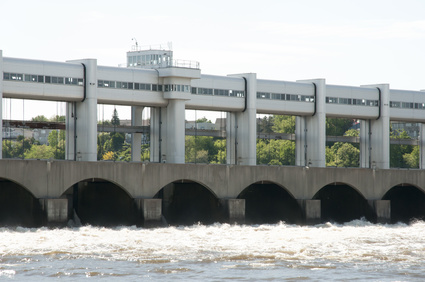A common hydroelectric future for Quebec and N.L.?

According to certain reports, Newfoundland and Labrador Premier Dwight Ball is in discussions with his counterpart from Quebec, Philippe Couillard, regarding the Churchill Falls hydroelectric project. Quebec’s openness to a new collaboration between the two provinces is expressed both by the Quebec government, through its minister for Canadian Relations, Jean-Marc Fournier, and by the leader of the province’s second opposition party, François Legault.
The opportunity is too good not to dream bigger, even beyond Churchill Falls.
Nalcor Energy is struggling with the Muskrat Falls power plant project, whose cost overruns are so high that they were threatening to destabilize the province’s economy, had it not been for the intervention of the federal government.
The unexploited hydroelectric potential of Labrador remains vast, some 7,000 megawatts, surpassing Churchill Falls and its 5,500 megawatts. Hydro-Québec has the requisite expertise to regain control of Muskrat Falls and to contribute to the development of the most cost-effective projects when market conditions become favourable. Its financial capacity gives it an additional advantage. On the other hand, its profitability depends in large part on the Churchill Falls agreement, a joint venture of which Hydro-Québec owns 34 per cent and from which it buys electricity at very low cost.
According to the calculations of Claude Garcia in a research paper published several years ago by the Montreal Economic Institute (MEI), without this advantageous agreement, 75 per cent of Hydro-Québec’s profits would have disappeared in 2007. The government of Newfoundland and Labrador has been contesting the terms of this agreement in court for years, but always unsuccessfully.
Is it possible to imagine an honourable, win-win solution for the two provincial governments and the two state-owned enterprises which would resolve the disputes, allow for the development of Labrador’s potential, and ensure that all of the parties share the same interests going forward? We think so.
The proposal
In exchange for a block of Hydro-Québec Production shares, the government of Newfoundland and Labrador would give the corporation ownership of Labrador’s hydroelectric power plants, as well as the responsibility for developing the region’s unexploited potential.
For Hydro-Québec Production, there are at least two advantages. The first is to be able to develop an appreciable hydroelectric potential, a challenge befitting its financial and technical expertise. The second consists of securing its main source of profitability, Churchill Falls power, with the discontinuation of legal proceedings.
As for Nalcor Energy and Newfoundland and Labrador, the value of the region’s hydroelectric potential would be maximized thanks to the collaboration with Quebec. Indeed, the export of electricity to the American Northeast or to Ontario would be facilitated with transmission lines passing through the Quebec network and the ability to store energy in Quebec’s existing reservoirs. In particular, the government would receive future dividends from a producer of clean and renewable energy, in addition to potential water-power royalties.
If certain risks associated with Labrador projects were to reduce the profitability of Hydro-Québec Production by shrinking the dividends it pays out, these costs would be rapidly compensated for since the two shareholders would have an interest in maximizing the long-term profitability of the company. At any rate, Quebecers’ electricity rates are not affected by Hydro-Québec Production’s operating costs, only by Hydro-Québec Distribution’s costs.
Finally, Hydro-Québec would benefit from improved governance if not all members of its board of directors were appointed by the Quebec government. Such an agreement would have the potential to bring some market discipline to Hydro-Québec Production and to keep Quebec politicians from using it for political rather than economic ends, since the Quebec government would no longer be the sole shareholder.
With this kind of strategic alliance, the two provinces would have a chance to rebuild a relationship of goodwill and collaboration. They have a duty to give it some serious consideration. Our proposal, formulated here in general terms, has the benefit of presenting a concrete way forward.
The authors wish to thank businessman and senior policy adviser Jacques Lamarre and MEI associate researcher Claude Garcia for suggesting the original idea for this proposal and for helping to develop it. This op-ed was also published in The Aurora (Labrador City) and The Labradorian (Happy Valley).
Michel Kelly-Gagnon is President and CEO of the MEI and Youri Chassin, Economist and Research Director at the MEI. The views reflected in this op-ed are their own.

